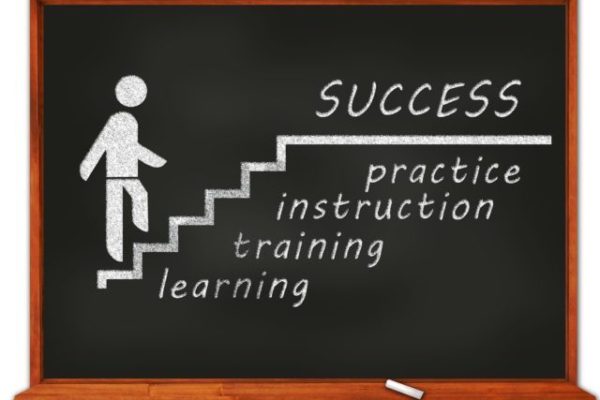Just as I did last year at this time, I am writing my final grading period post of the year as a reminder that you should take the best possible advantage of every remaining opportunity you have to end the year as well as you possibly can. One of the reasons that is so important is that the end of the school year, as far away as it might still seem when you think about your summer plans, is actually not as far away as it seems when it comes to what you need to accomplish from an academic standpoint. In this final grading-period related post of the school year, I will focus on the importance of continuing to work to the best of your ability until the last possible moment, so you can figure out what you need to do to end not just your final grading period, but the year as a whole, on the best possible note. This year, just as I did in my recent post about remembering to do what works, I will also ask that you compare and contrast where you are on your study skills journey now to where you were then, so that you can build on the progress you’ve made by continuing to make further improvements that you can carry not only through the end of this year, but into next year as well.
Whether you only have a couple weeks of school remaining, or you still have a month or more left in your year, I’m sure you can all agree that now that it is the middle of May, the school year is almost over. Warmer weather and anticipation for graduation and any other year-end activities that have been scheduled all make staying focused on your schoolwork more challenging, and giving in to distractions more tempting. As hard as it may be for you to do, try to resist the temptation to let up on your schoolwork. Remind yourself that you are playing the long game with your study skills, as well as with your grades. Even if your final grades will not change drastically due to the work you put in during these last weeks of the year, remember that every little bit counts – not only because a higher average than you had before is better than a lower one, but also because those final averages go on the permanent record that will follow you, not only through your remaining years at your current school, but to any school you will transfer to, including colleges. No matter how well you think you did with your study skills and your grades at the end of last year, try to find ways to do even better this year. If you think you did reasonably well, focus on a certain subject or two in which your final grade is not where you want it to be, through any combination of spending a little extra time on it, applying an additional study skill or method to it, or asking the teacher or teachers for extra help with it. If you don’t think you did all that well focusing on your schoolwork and/or your grades at the end of last year, or you realize now that more than just a single grade or two is lower than you hoped it would be, try to apply the study skills that have worked for you throughout this year more broadly, while also changing anything that didn’t work and asking for whatever help you might need.
No matter your circumstances, and no matter the year-end activities you are anticipating, one of the most challenging things about making the most of whatever time is left in your school year is resisting the pressure from your peers to do just the opposite. Spring fever in general and senior slump in particular are largely driven by peer pressure. Whether it’s the star students who suddenly decide they no longer need to focus on their studies because their college plans are set, or the poor students who’ve never cared much about their studies who now don’t care at all because they are counting the days until their schooling is through, those of you who may have some challenges but have worked this year to develop the study skills that can help you overcome them may feel positively surrounded, not just by temptation, but also by the pressure to give in to it. I am not here to tell you to simply ignore the pressure and have no fun at all until the last day of school or graduation day. Instead, my best advice is that you weigh what tempts you against what you’d give up by giving in to it. If your friends want to spend extra time with you, it is certainly worth making time for them. Just schedule the study time you need around your social events, perhaps by cutting back on other fun activities like watching TV or playing video games, and make sure to put study time first when there is no way to reschedule it, such as when a teacher has offered exam prep sessions after school. Remember that part of developing good study skills is making wise choices, while also allowing for school/life balance, and you will be able to resist peer pressure not by saying no to everything, but rather by saying yes only when it works for you. Since you may well have more opportunities to participate in enjoyable end-of-year socializing, activities, and events than you have had over the past couple of years, resisting the pressure to say yes to everything may seem even more impossible than it otherwise would have, but in order to truly progress with your study skills and look ahead to the future, it is something that you still must consider. In addition to comparing where you are with your study skills and grades now to where you were last year at this time, you certainly should also compare what is available to you now to what was available then. Though you probably won’t be able to say yes to everything, prioritizing events and activities that you have particularly missed these past two years over others that don’t mean quite as much to you is certainly understandable, as is prioritizing them over your studies, as long as you look for other times when you can get your work done. The one exception to making wise choices among various activities and events is graduation – if you, a sibling, or anyone you are close to is graduating, and you have the chance to participate in and/or attend the ceremony, that is priority number one, especially if it is at last resembling what it used to be. No matter what else you may wish to prioritize as you work to develop you study skills, graduation is what you are striving for, so whether it is yourself or someone else you are celebrating, recognize the significance of the moment and realize how important it is that you are there.
In addition to making the most of the time you have left this school year because of the positive impact it will have on your study skills journey, and striving to balance that goal against the temptations of year-end social events and the peer pressure to put them above any need to remain focused on your schoolwork, it is also important to remember that you should approach each class period ready to give your very best effort, no matter what is taking place, and no matter how close to the end of the year you actually are. In my previous grading-period posts, I mentioned that one of the reasons you shouldn’t lose focus between the close of a grading period and the appearance of your grades is that the new grading period starts as soon as grades close after the old one. Obviously, that is not true at the end of the final grading period, but that does not mean you should tune out the moment you know grades have closed for the year, even if, especially if, your classmates have done so. Knowing no tests or major assignments remain does not mean there is no longer any value to what teachers plan to do to close out the year, and acting as if that is the case is not only very disrespectful to the teachers who wish to make the most of every moment they have with you, it is also an opportunity missed on your study skills journey. While teachers may end the year with easier content and/or fewer expectations on assignments, most of them will use the time to cover material you may well need to know in future years, or will find ways to enrich your knowledge base that you should not take for granted. Often, they will choose topics that lend themselves to projects and/or group work, and many of them will find ways to encourage you to have fun with it that they might not have allowed previously. Whatever they decide to do, make the effort to get as much as you can out of it. Your teachers will appreciate it, and you will benefit from it, whether you realize it in the moment or not. Though it does not make a difference in your final grades if you don’t participate fully in your final class periods of the year, simply striving to participate more this year than you did last year, or perhaps ever have at the end of a school year before, is enough to prove to both yourself and your teachers that you realize that striving to keep learning, even when improving your grades is no longer possible, is a great way to build on your study skills progress in preparation for the new school year that awaits.
Making the most of the time you have left in your school year is certainly easier said than done, but it is also well worth it. The positive impact it will have on your study skills journey and your future plans will pay off over time, and will more than make up for anything you might miss out on in the moment. While you have certainly earned the right to let loose a little after a long school year, developing good study skills means learning to balance that need for fun with the need to focus on your goals. The more you are able to do that, the better off you’ll be, not just through whatever remains of this school year, but in future years as well.

